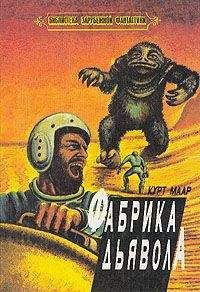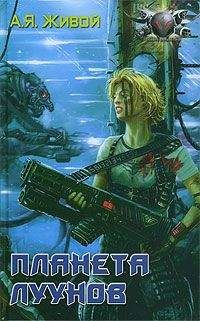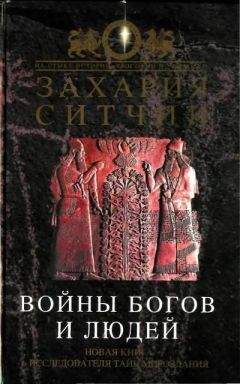Fairstein, Linda - Silent Mercy
He held up five fingers and whispered, his lips against my ear. “He obviously gave the engineer the signal to start running. He’ll either ramble back and check on his charges, or he’ll settle down in his office, in which case we’ll already be out of the rail yard and on the live tracks.”
I closed my eyes as the train swayed around a curve and tried to keep my balance by holding Mike’s shoulder.
“What is it with the eyes, Coop? The onions? I shouldn’t have had that second sandwich.”
I shook my head, unable to get the vision of Faith’s sister out of my mind. “Chat. It’s Chat. Not knowing where she is or what condition she’s in. How did I ever let that fragile girl walk away this morning?
“You can’t go there, kid. We didn’t know then what we know now. We’re pulling out all the stops to find her. Stay cool. Wrap your mind around P. T. Barnum.”
“There’s a sucker born every minute, is that what you’re telling me?”
“He never said that, Coop. Some guy said it about one of his exhibits. The Cardiff Giant. Remember him?”
Mike was trying to keep me calm. He could read me as well as anybody. He was so close to me he could probably hear how fast my heart was pounding.
“Yeah.”
“Let’s hope our perp stays away from Grace Church.”
The elegant Episcopal landmark on Broadway at Tenth Street was, like St. Patrick’s Cathedral and the old smallpox hospital on Roosevelt Island, another stunning design of the architect James Renwick.
“I give up,” I said.
“Built with stone cut by the inmates at Sing Sing and shipped down the Hudson. That’s where Barnum held the wedding of Tom Thumb and Lavinia Warren, his two dwarfs, in 1863. Bet there’s not a true Barnum scholar on this whole train.”
“Is there anything you don’t know?” I asked. He had managed to draw a smile from me. “That’s right. Barnum called Tom Thumb a general, didn’t he? A four-year-old general. Of course you’d know about him, even if it was only a stage name.”
The train had suddenly gone from a slow canter to a noticeable trot. We were on the straightaway now and moving at a good clip.
I could hear Fontaine Delahawk’s voice as he reentered the car. He stopped close to where we were hiding, wheezing until he finished a violent coughing spasm. The teenager who had helped him off the train must have been his assistant. The older man again barked orders, telling someone — presumably that same kid — that he was going back to his room to await dinner.
“I’ve always wanted to come out of the closet. Too bad there’s nobody here to see me,” Mike said. “How about you?”
He reached behind his back and twisted the handle on the door. The large office was empty, except for the sound of the steel wheels.
It was smartly outfitted in the finest of wood finishes. And like a fancy yacht, everything was built into the walls of the windowless car so that it would be difficult for objects or furniture to be dislodged by the motion of the rocking train. There were several desks and a row of filing cabinets. Brass fittings were mounted on every drawer, more likely to secure them in place than to protect from intruders — like the two of us.
“Snap some photos, will you, Coop?” Mike asked. “We may need to come back to this later on.”
He waited until I aimed my phone for a few shots, then pulled back the heavy arm of the car’s exit as we made our way carefully onto the next platform.
There was a single door on the right-hand side of the long car. On the wall adjacent to it, a small whiteboard was affixed, and someone had written eight names — many of them foreign-sounding — in alphabetical order. The men and women who occupied this suite were a mix of Italian and Spanish, Russian and Czech, French and Hungarian, with a couple of Americans thrown in.
Mike opened the door and we entered. Directly opposite was a small cubicle — like a tiny college dorm room with a bed, dresser, and desk — occupied by a striking, raven-haired woman dressed in a sweatsuit. I’d guess she wasn’t much older than twenty-five.
“Hey, guys. What’s up?” she asked. Her back was supported by three pillows, none of which disturbed the well-lacquered beehive updo atop her head. She was balancing a hardcover astrology book on her knees. “Who are you?”
She seemed amused and curious about our presence, not concerned.
Mike showed her his shield and identified himself.
“Awesome!”
“We’re with Missing Persons, Ms. Cooper and me. We’re looking for a young woman who went missing.”
It was a long-standing police department tactic. People were always much more willing to cooperate to find someone who may have just run away than become ensnared in an ugly murder investigation.
“You think she’s with us? No way.”
“Mind if we talk?”
“Sure. Mr. Delahawk says—”
“Yeah, we met him on the way in.”
She leaned over and patted the end of her bed, and Mike sat down, motioning me to the desk chair. “I’m Kris. Kristin Sweeney.”
Not from the long line of European circus families, I guessed, as so many of the performers with foreign names might be.
“You a Cowboys fan?” Mike asked. There was a poster over the bed of the Dallas football team, autographed by many of the players.
“Can’t grow up in Spur, Texas, and root for anyone else. I was a cheerleader for them before I took this job.”
“Awesome,” Mike said, smiling back at Kristin, and I knew he meant it sincerely. “Hard act to follow. What are you now? A lion tamer?”
She giggled, pushing the book aside and wrapping her arms around her knees. “I’m a stunt rider. Bareback, acrobatics, leap through fiery hoops. All that kind of stuff.”
“I’ll have to buy a ticket for tomorrow’s show,” Mike said. “I’ve spent most of my life trying to find a girl who can jump through fiery hoops. How long you been with the circus?”
“I joined up last fall, in Florida. Had to go to school all summer before that. Circus school.”
“Have any new girls been around lately?”
“New girls? Doing what? I mean we always bring on some locals — you know, as ushers or ticket takers. But I don’t have anything to do with any of them.”
“I wouldn’t think so, you being a pro and all.”
I might as well have been on another planet. Mike seemed totally taken with his Dallas cheerleader. Maybe it was the bareback thing.
“There must be lots of guys hanging out at the stage door for you, Kristin.”
“Yeah, if you’re into twelve-year-olds,” she said with a laugh. “Not so much as you’d think.”
“And girls, looking to hook up with guys?”
“Occasionally.”
“Anyone been coming around named Naomi since you’ve been at the Garden?”
“Nope.”
“Ursula? Or Chat — short for Chastity?”
“I’d remember that one for sure,” she said. “Are all these girls missing? That’s so weird. But then, my mother warned me that New York was like that.”
“Not usually. Not with me on the job.”
“People always joke about running away to join the circus, but that’s not how this works, Mike. There’s all kinds of training before anyone gets hired. We don’t pick up any strays along the way. We’re a family, is what we are.”
“Tell me about this family, Kris. We got a long ride ahead of us tonight.”
“You both coming to Providence?” she asked, shooting me a sidelong glance.
“Yeah. What should we know?”
Kristin Sweeney was practically gushing now. “So, think of this as an apartment building. Like, thirty-five stories tall, except it’s horizontal. The only thing we don’t have is a zip code.”
And, I guessed, a police department.
“Doesn’t look like you have any privacy,” I said. “Eight of you to a suite? No bathroom?”
“There are just a few cars like this. Works fine if you’re single, like I am.”
“Who gets to ride the train?” Mike asked.
“The artists, of course. Cooks and stagehands and prop guys. Mechanics and electricians. Elephants, horses, wild animals. The costume lady and all our glitz. Cast and crew, Detective. We’re all here.”
“Some of the rooms are larger?”
“Yeah. Some of the couples have their own little apartments. They bring their kids along, or their in-laws. Flat-screen TVs and toilets and all that. Kitchenettes, which is something I miss a lot,’cause I enjoy cooking. The rest of us eat in the Pie Car. That’s what it’s called, but it’s really a diner. Mr. Delahawk even has an electric fireplace in his suite.”
“You like this kind of life?” Mike asked.
“I like it fine, for now. Better than what was waiting for me home in Spur after my cheerleading days were over. Better than circus life used to be, moving from hotel to hotel, always packing and unpacking. I’ve made friends here. I said it’s like family, right? Well, for me it’s better than hanging with most of my family.”
“How about the guys, Kris? You know all of them?”
“I sure do. It’s not like I date any of them, if that’s where you’re going. Most of us in the troupe are pretty young. Hardly anybody over thirty-five. We work together, we live together. Spend a lot of time with each other. Some of them have grown up in this business, Mike. They’ll have kids who’ll be Ringling babies.”
Kristin Sweeney stopped talking and pointed at me. “She’s looking at me like it’s all strange, what we do. It’s not. It’s really not.”
“That’s not what I was thinking,” I said. “I apologize. Your life sounds really interesting to someone like me who sits at a desk a lot of the time.”
I was actually thinking how lucky we were to get such a cooperative talker in the first room at which we stopped. And trying to remember the last time I’d spent a full day at my desk.
“You ride this train from town to town?” Mike asked.
“All over the country.”
“Can you — do you — ever get off?” Mike asked. “Have you been into Manhattan on your own?”
“Oh, sure. They run a shuttle bus for us, almost wherever we go, so we can get around. And there’s a flatbed freight train that travels behind us. It’s got some motorcycles and cars on it. Lots of guys use those for their socializing and such.”
Everything suddenly went dark and I clutched the edge of the desk. Two seconds later, the lights went back on and I realized we had gone underground, into the vast tunnel system that fed an endless flow of trains below the Hudson River, across to Manhattan to be routed around Penn Station for the trip northeast. For a little while, we might arguably have a claim to proper jurisdiction.
“So, let me ask you about a guy I’m looking to talk to, Kris,” Mike said.
“Okay.”
“He’s a performer. Maybe worked with the troupe a few months back. Maybe still does.”
She sat up straighter and listened attentively.
“He’s a tall guy, very thin. Has dark hair, keeps it long — sometimes tied back like a ponytail. Don’t know what kind of artist he is, but he moves real smooth and graceful.”
Kristin Sweeney wasn’t smiling at Mike any longer. She had her right arm raised to the wall next to her before he finished his description, and was pounding on it with her fist as he spoke.
“He’s got bad skin, some kind of blisters—”
“I don’t know a guy like that, but why do you want to talk to him anyway?” She was quick to answer, and there was almost a snarl in her voice. “About those girls? About?”
The door opened and a hulking six-foot-six-inch man put a foot forward in the room. He had the torso of a comic-book strongman.
“Nico,” Kris said. “Thanks for coming in. These guys are cops.”
If someone had posted a Doric column in the doorway, it would have been easier to work my way around it and out of the room.
“Nico Radka. Pleased to meet you.”
So he was the Czech performer in the next room, whose surname had been on the whiteboard. To the rescue, as Kristin had hoped.
“Mike Chapman. Alex—”
“Nico, they’re all into asking questions about some missing girls and stuff. That’s why I was answering them at first. Now they want to know if we got a guy that looks such and such. Tall, ponytail, red face or something. Maybe you should find Mr. Delahawk. I don’t know anyone like that.” She was talking to Mike but staring at Nico Radka, as tense as if Mike had struck a nerve underneath a bad tooth.
“Why don’t you step out with me, Mr. Mike?” Nico asked the question politely, almost as though he was giving us a choice.
“We met Mr. Delahawk on the way in. He has no problem with helping us,” Mike said, foolishly assuming that we wouldn’t encounter the manager in our passage through the cars.
“Very well then. We shall get him.” The young man’s accent was thick. So were his lateral deltoids.
“What’s your gig, Nico?”
“Tumbling. Acrobatic tumbling.” Nico turned sideways to wriggle his way down the narrow corridor of the train as it emerged from beneath the river and hurtled north on the tracks that ran parallel to the Jersey Palisades. “Come, please. Lock your door, Kristin. Is best you do.”
We followed Nico down the length of the hallway, across a platform with protective railing on both sides that linked to the next car.
This one seemed to be divided into two suites, obviously larger than the cubicles in which Kristin and Nico lived.
“So you know this guy I was talking to Kristin about?” Mike asked.
“Which guy?” Nico’s head went from side to side as he walked toward the rear of the car but continued to turn back to Mike, whether to answer questions or make certain we were staying in line behind him.
“One of your buddies. Tall and lean, ponytail—”
“Why you want to know who we know? Somebody does something wrong?” His muscled arms braced against the window as the train rocked along the tracks.
We hadn’t been so lucky with our first contact after all. Kristin and Nico had joined forces to circle the wagons around their extended family the moment she figured our interest had shifted from finding missing women to fingering one of the men in their troupe.
“We’re looking for people, that’s all. We think one of your friends may have known them.”
The first whiteboard we passed bore the names RAMON AND RAMON under the hand-drawn images of two stars. I heard Mike ask Nico who they were.
“Illusionists, Mr. Mike. Best in the world.”
Good enough to occupy half a train car. The other label at the far end said THE FLYING ZUKOVS. Again, someone had added a sketch, this time of a stick figure hanging from a trapeze.
Nico opened the door to pass into the next wagon. On the platform, which was like a small open vestibule, a man sat in a folding beach chair, looking at the scenic vista as we raced along the Hudson River.



